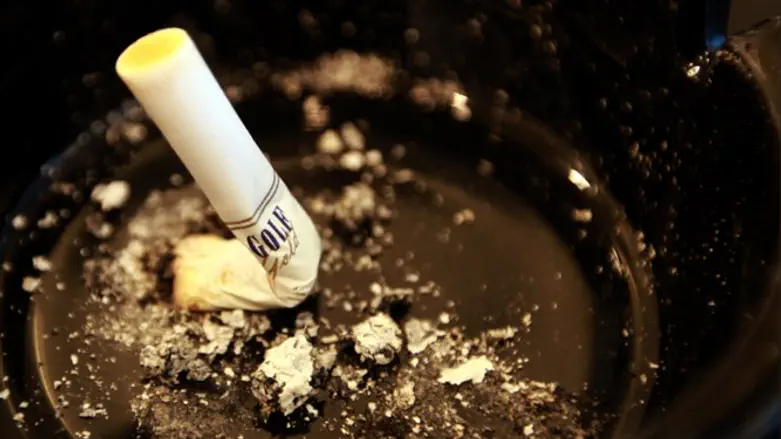
A new Health Ministry report showed that nearly sixty percent of Israel's children are exposed to secondhand smoke, Israel Hayom reported.
In 2016, the Ministry examined urine samples from 103 children and sent them for analysis abroad. When the results came in, they showed that 59% contained cotinine, a byproduct of nicotine which serves as a reliable way to measure exposure to cigarette smoke.
The study also compared the Israeli children's results to those of children in other countries. Israeli children were found to have a higher level of cotinine than their counterparts in Canada, Germany, and England, but lower levels than their counterparts in Poland, Israel Hayom noted.
Even more worrying is that Israeli children from a low socioeconomic status have higher levels of cotinine than their higher-SES counterparts.
A new Health Ministry department will be responsible for monitoring biological issues, including exposure to environmental tobacco, secondhand smoke, pesticides, heavy metals, and other toxins. These levels will be used to determine and advance Health Ministry policies in the future.
The new department is partially funded by the Environment and Health Fund.
In 2016, Health Minister Yakov Litzman (UTJ) buried a report on smoking in Israel, saying he needed to "reexamine the statistics," despite the fact that the number of smokers in Israel rose from 19.7% in 2015 to 22.5% in 2016, and the number of IDF soldiers who smoke at discharge stands at 37%.